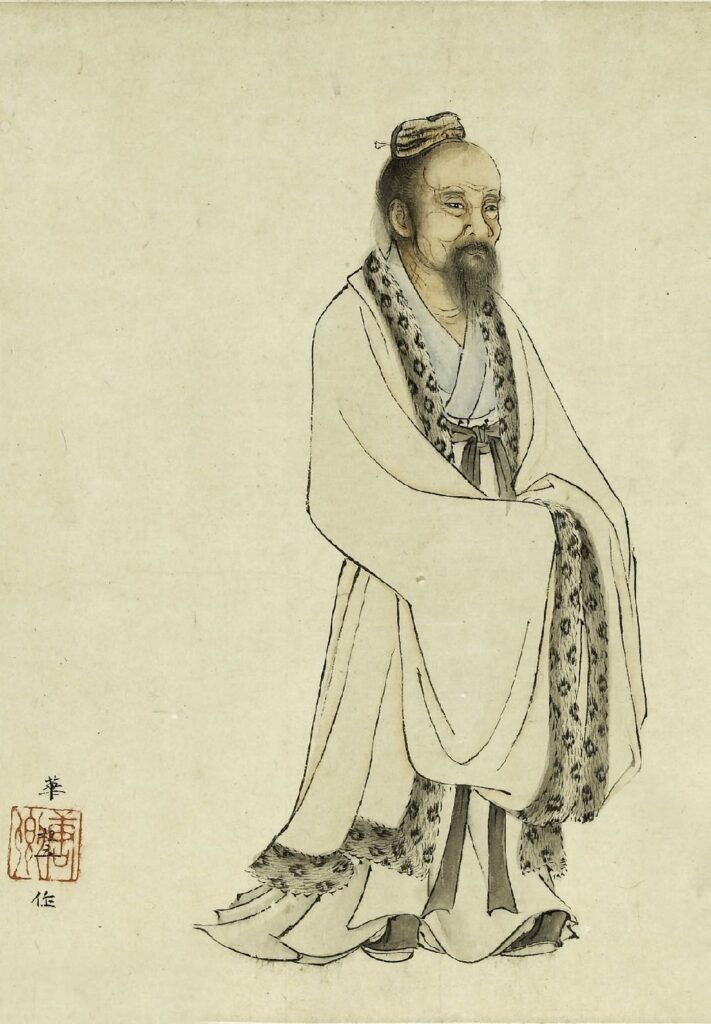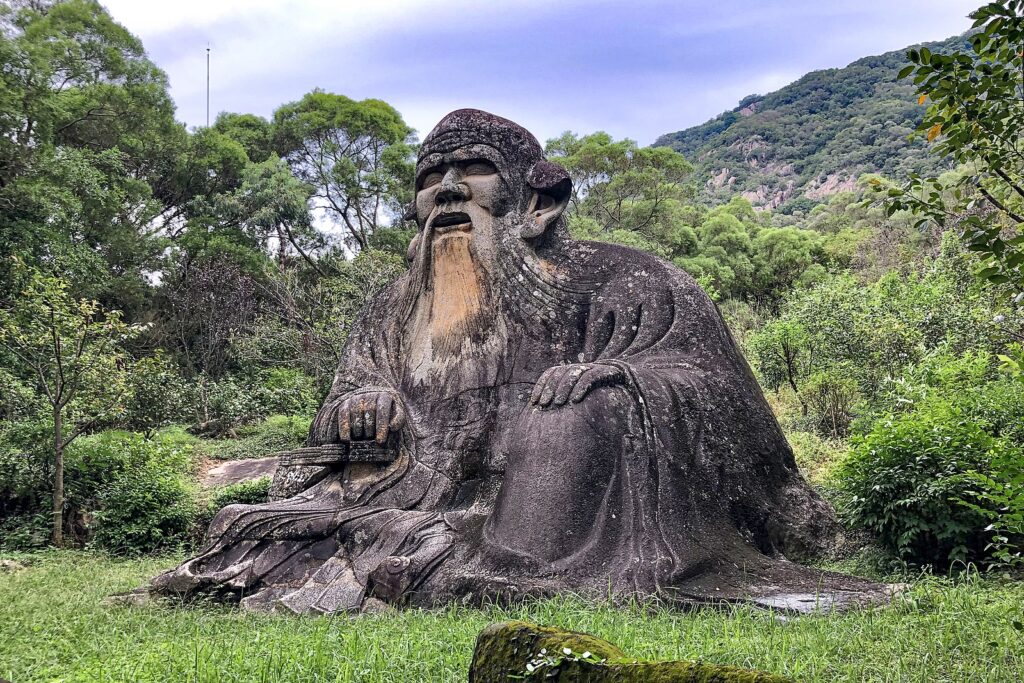Yang Tzŭ Chü went to see Lao Tzŭ, and said, “Suppose a man were ardent and courageous, acquainted with the order and principles of things, and untiring in the pursuit of Tao—would he be accounted a wise ruler?”
“From the point of view of a truly wise man,” replied Lao Tzŭ, “such a one would be a mere handicraftsman, wearing out body and mind alike. The tiger and the pard suffer from the beauty of their skins. The cleverness of the monkey, the tractability of the ox, bring them both to the tether. It is not on such grounds that a ruler may be accounted wise.”
“But in what, then,” cried Yang Tzŭ Chü, “does the government of a wise man consist?”
“The goodness of a wise ruler,” answered Lao Tzŭ, “covers the whole empire, yet he himself seems to know it not. It influences all creation, yet none is conscious thereof. It appears under countless forms, bringing joy to all things. It is based upon the baseless, and travels through the realms of Nowhere.”
(The operation of true government is invisible to the eye of man.)
From Chapter VII (How to Govern) of Chuang Tzu. Courtesy Gutenberg project

Chuang Tzu (also Zhuang Zhou or Zhuangzi, literally “Master Zhuang”) was an influential Chinese philosopher and Taoist sage who lived around the 4th century BCE in a period of great development in Chinese philosophy, the Hundred Schools of Thought. He is credited with writing—in part or in whole—a work known by his name, the Chuang Tzu or Zhuangzi, which is one of the two foundational texts of Taoism, alongside the Tao Te Ching of Lao Tzu.
Image courtesy Hua Zili , Wikimedia Commons.
Taoism is a diverse philosophical and religious tradition indigenous to China, emphasising harmony with the Tao (way, road, path or technique). Taoist thought has informed the development of various practices within the Taoist tradition and beyond, including forms of meditation, astrology and feng shui. A common goal of Taoist practice is self-cultivation, a deeper appreciation of the Tao, and more harmonious existence. Taoist ethics emphasise such virtues as effortless action, naturalness, simplicity, and the three treasures of compassion, frugality and humility.

Lao Tzu, or Laozi, was a semi-legendary ancient Chinese philosopher and a revered figure in Chinese culture. He is generally considered the founder of Taoism and author of the Tao Te Ching, the foundational text of Taoism. Lao Tzu is a Chinese honorific, typically translated as “the Old Master.“
Image: Stone statue of Lao Tzu at Qingyuanshan in China.
